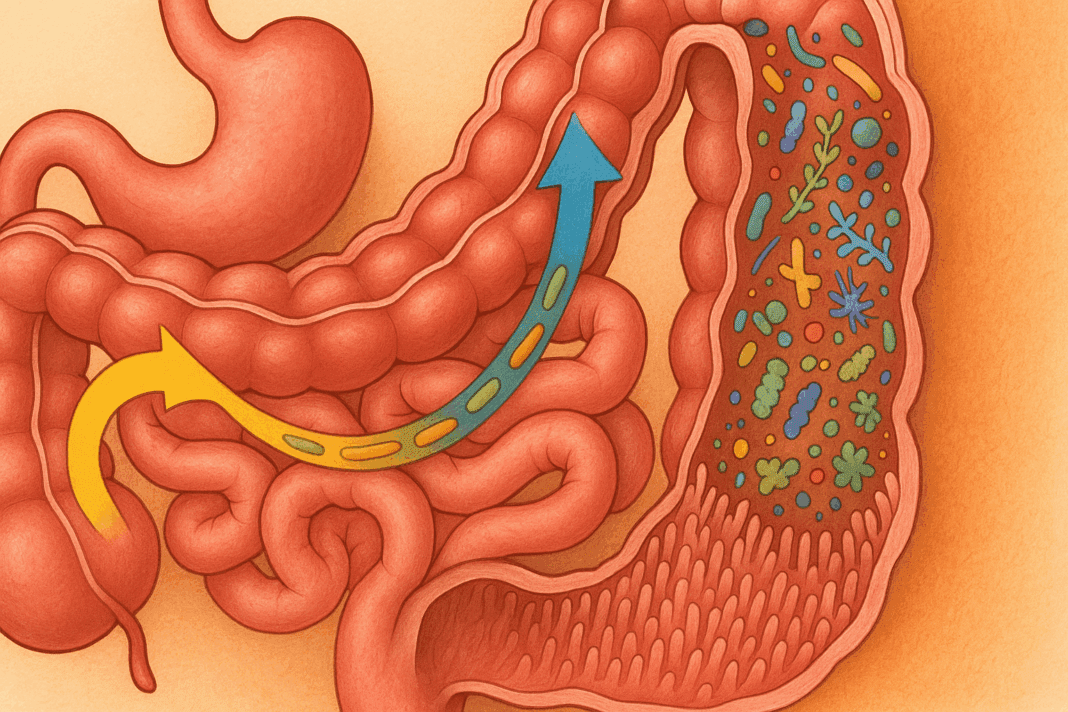Modern nutrition science continues to uncover the vast array of health benefits tied to fiber-rich vegetables, particularly in the context of gut health and digestive wellness. Among the most celebrated in this category are broccoli and carrots, not merely for their accessibility and culinary versatility, but for their scientifically validated contributions to gastrointestinal function. The fiber content in these vegetables is especially significant, offering a natural and effective way to support microbial balance, bowel regularity, and long-term digestive health. As holistic dietary strategies gain more attention for their preventive and therapeutic potential, understanding the gut-related virtues of broccoli and carrots becomes essential for anyone seeking sustainable wellness through food.
You may also like: The Ultimate Guide to Gut Healthy Meals: Best Meals for Gut Health and Nourishing Recipes You’ll Love
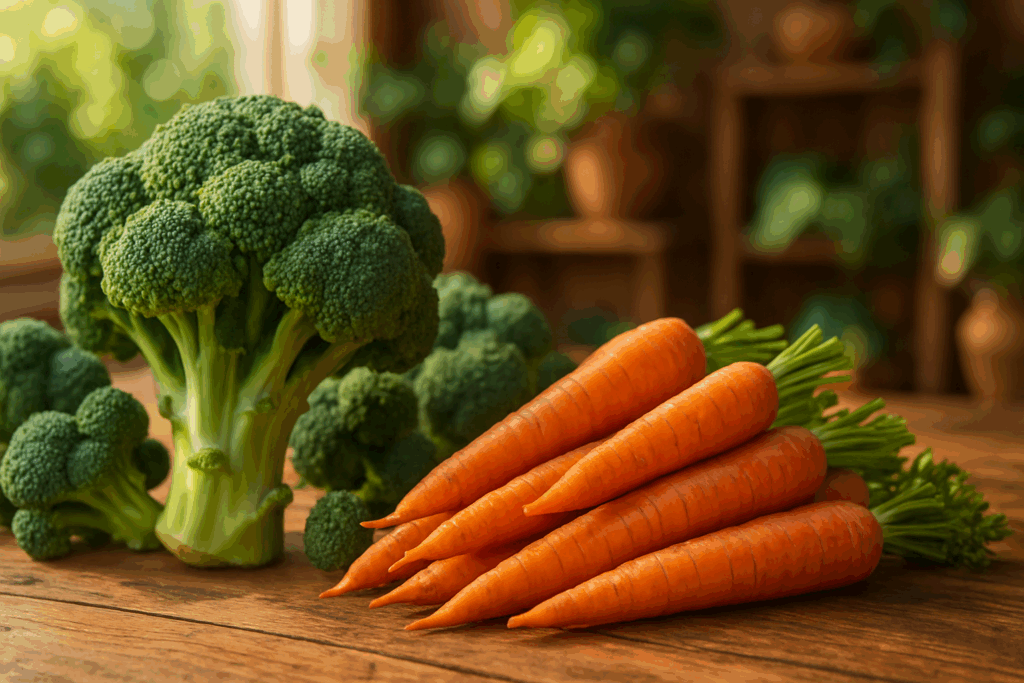
Understanding the Role of Fiber in Gut Health
Dietary fiber is more than just a tool for easing constipation; it is a multifaceted nutrient with profound effects on digestive physiology. Soluble fiber forms a gel-like substance in the gut, slowing digestion and helping regulate blood sugar and cholesterol levels. Insoluble fiber, on the other hand, adds bulk to stool and facilitates its passage through the digestive tract. Both types of fiber serve as substrates for beneficial gut bacteria, contributing to the production of short-chain fatty acids that help maintain the integrity of the intestinal lining and modulate inflammation. Thus, consuming vegetables with high fiber content plays a critical role in maintaining gastrointestinal harmony.
Emerging research increasingly points to the importance of fiber diversity in fostering a resilient gut microbiome. A diet inclusive of various fiber sources, such as those found in broccoli and carrots, encourages microbial variety, which is strongly associated with improved immune function and reduced risk of chronic disease. It is within this context that the question, “does broccoli have fiber,” becomes more than academic. It is a crucial nutritional consideration with real implications for health outcomes.
Decoding Broccoli Fiber Content and Its Digestive Impact
Broccoli has long been recognized as a powerhouse vegetable, rich in vitamins C, K, and a range of antioxidants. However, its broccoli fiber content is what particularly distinguishes it as a digestive aid. On average, one cup of chopped raw broccoli contains about 2.4 grams of fiber, a significant portion of which is insoluble. This fiber type is instrumental in preventing constipation by promoting efficient bowel motility.
But broccoli’s digestive benefits go beyond simple regularity. The vegetable is also a source of glucosinolates, compounds that are broken down into bioactive substances in the gut. These compounds have been shown to influence the gut microbiota composition positively and exhibit anti-inflammatory effects. Thus, the fiber in broccoli does more than move waste along; it interacts with the gut environment in ways that can foster long-term gut resilience.
When asking how much fiber in broccoli is ideal for daily consumption, the answer depends on individual dietary needs. However, integrating one to two cups of broccoli into meals several times a week can significantly contribute to the recommended daily fiber intake, which is 25 grams for women and 38 grams for men. This level of intake not only ensures sufficient roughage but provides a continuous supply of plant-based compounds that nourish gut flora.
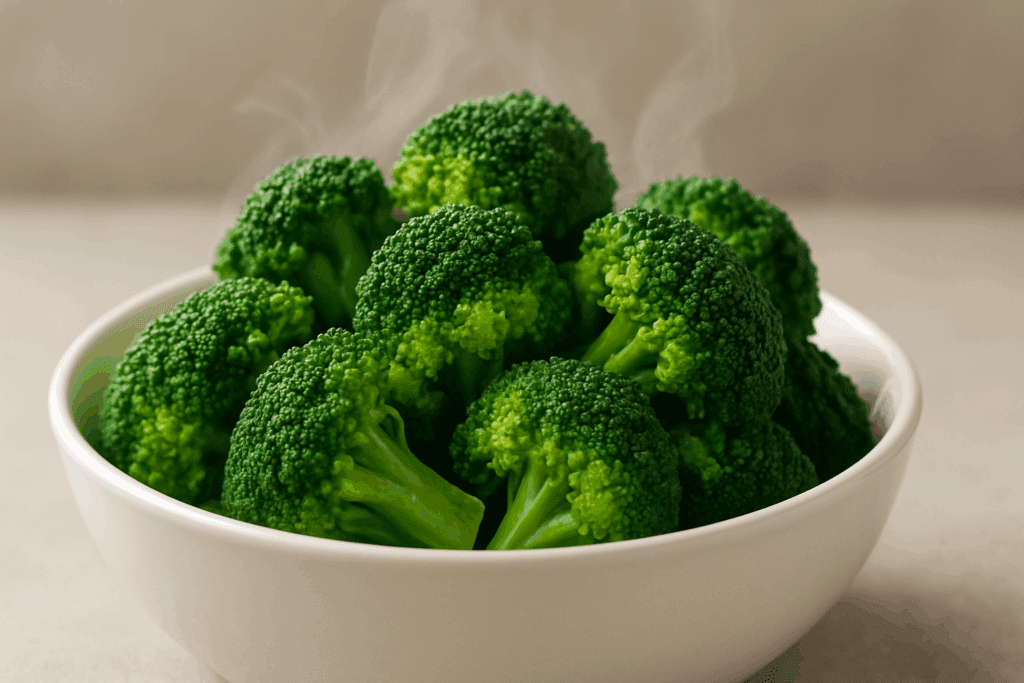
What Science Reveals About the Fiber in 1 Cup Broccoli
For those seeking a more quantifiable approach to nutrition, examining the fiber in 1 cup broccoli reveals substantial support for its reputation as a gut-friendly food. In cooked form, the fiber concentration changes slightly due to water content reduction and breakdown of cellular walls, often resulting in slightly higher bioavailability. Still, even raw, this one-cup measurement delivers not just bulk fiber but a rich blend of nutrients that amplify digestive function.
Moreover, the broccoli dietary fiber works synergistically with the vegetable’s phytonutrients to bolster gut wall integrity and reduce leaky gut symptoms. This is of particular interest to individuals dealing with irritable bowel syndrome or mild inflammatory bowel conditions. Integrating broccoli as part of a high-fiber, plant-focused diet may help reduce symptom severity and improve overall digestive comfort.
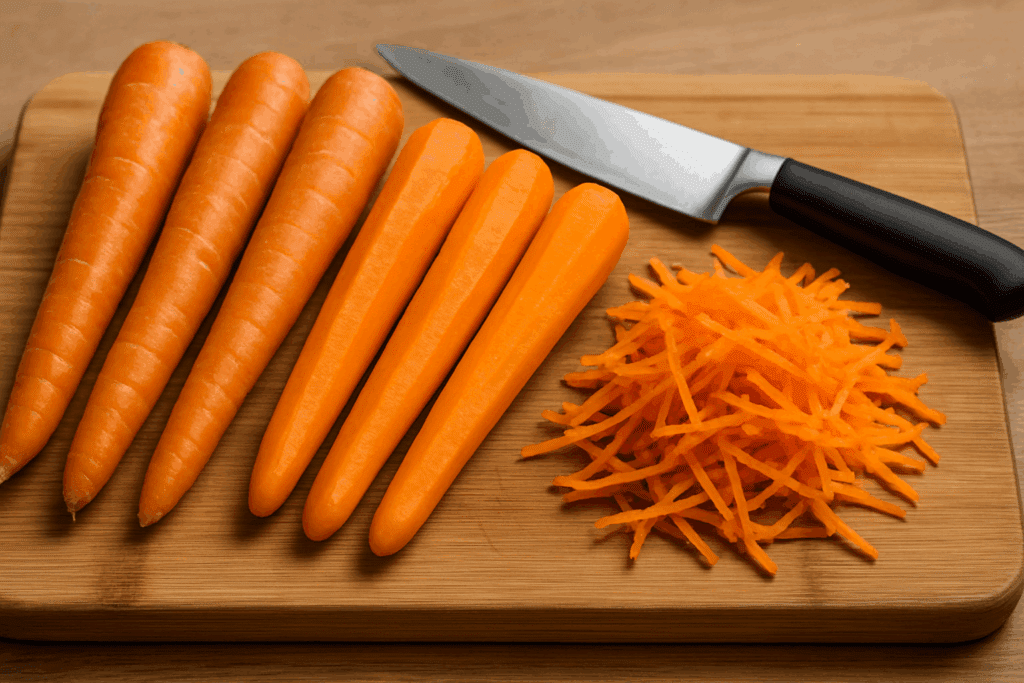
Exploring the Amount of Fiber in Carrots and Its Unique Benefits
Carrots, with their vibrant orange hue and crisp texture, are another vegetable that should not be overlooked in discussions about gut health. They provide an appealing flavor profile while delivering a respectable dose of fiber. The amount of fiber in carrots varies slightly depending on preparation, but one cup of chopped raw carrots contains approximately 3.6 grams of fiber.
What makes carrot fiber particularly beneficial is its balance between soluble and insoluble types. This allows it to serve multiple digestive functions: binding to excess cholesterol, stabilizing glucose levels, and easing bowel movement. Questions like are carrots a good source of fiber or do carrots have a lot of fiber are answered affirmatively not just by the numbers but by the nature of the fiber itself. Carrots contain pectin, a type of soluble fiber known to support gut flora by promoting the growth of bifidobacteria and lactobacilli.
When considering how much fibre is in carrots as part of a comprehensive dietary plan, even modest daily servings of carrots can contribute meaningfully toward gut health goals. Their convenience as a snack, component of salads, or ingredient in cooked dishes makes them an effortless yet effective tool in holistic digestive support.
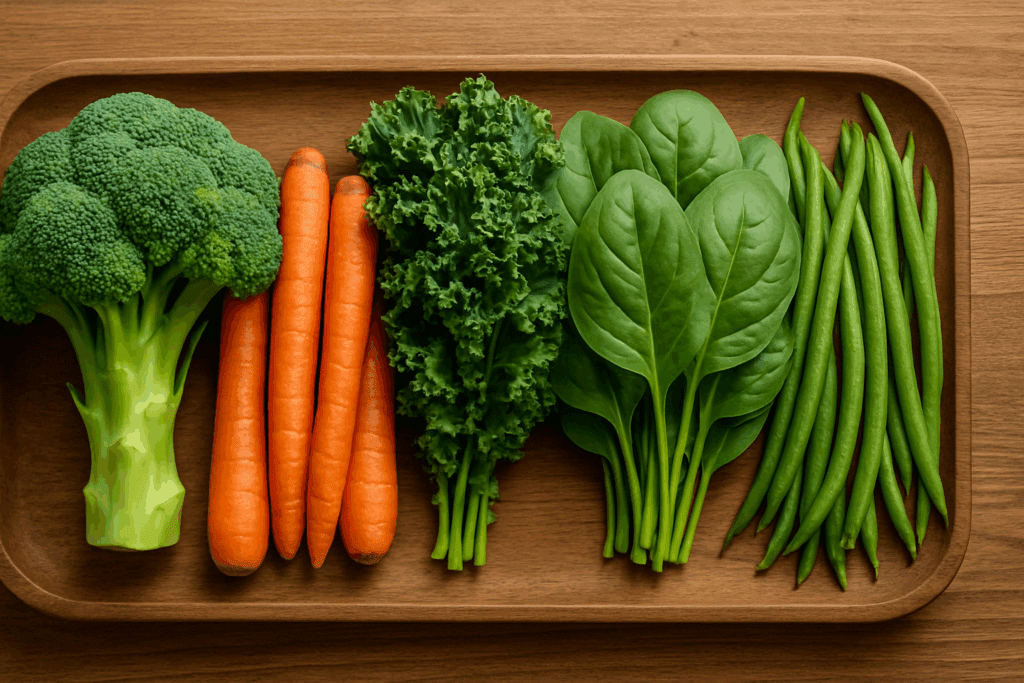
What Kind of Fiber Is in Carrots and Why It Matters
Understanding what kind of fiber is in carrots allows for a deeper appreciation of their role in gut wellness. As noted, carrots offer both soluble and insoluble fiber. The presence of cellulose and hemicellulose forms the backbone of their insoluble content, aiding in fecal bulk and regularity. Meanwhile, their soluble fibers, especially pectin, contribute to the development of a favorable gut microbiome by serving as fermentable substrates.
This dual-action capability makes carrots particularly effective in addressing both constipation and loose stools, depending on the broader dietary context. Their adaptability across raw and cooked applications further enhances their nutritional profile. Whether steamed, roasted, or pureed into soups, the fiber content remains substantial and functionally significant, reinforcing carrots’ role as a staple in gut-supportive diets.
Broccoli Fiber Content Compared to Other Vegetables
When evaluating the broccoli fiber content in relation to other vegetables, it becomes clear that while broccoli is not the highest fiber provider, it offers a highly beneficial composition. Compared to leafy greens or legumes, broccoli holds its own by delivering a mix of fibers along with sulfur-containing compounds that uniquely benefit the digestive system.
In contrast to root vegetables like carrots, broccoli offers more in the way of insoluble fiber and anti-inflammatory compounds. This makes it particularly useful for individuals seeking to manage chronic digestive issues or maintain bowel health over time. While the question does broccoli have fiber is easily answered with a yes, understanding how its specific makeup compares to other sources is key to strategic dietary planning.
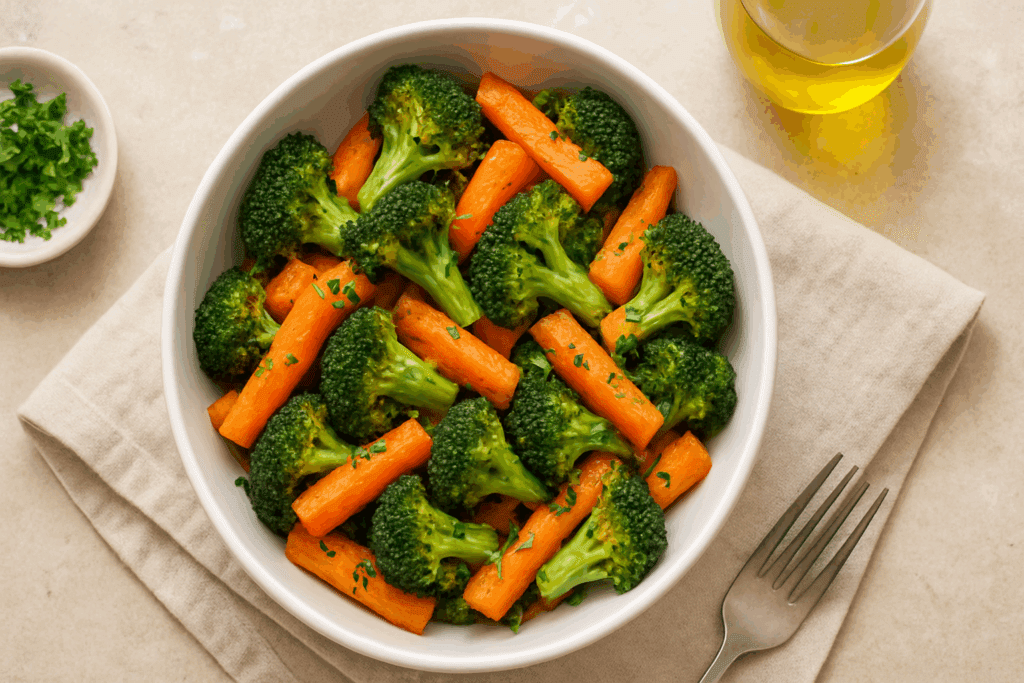
Are Carrots Good Fiber for a Balanced Gut Microbiome?
The growing interest in gut microbiome research has prompted many to reassess the types of fiber consumed regularly. So are carrots good fiber when it comes to microbiome diversity and stability? The answer lies in their fermentable fiber content. Pectin, the soluble fiber in carrots, is particularly effective in enhancing the gut’s microbial profile.
Carrots also contain antioxidants like beta-carotene, which support mucosal health in the intestinal tract. This allows for a well-rounded impact that goes beyond fiber alone. Integrating carrots into daily meals thus provides not only roughage but also antioxidant protection that helps maintain epithelial health within the gut. Their ability to be consumed in multiple forms—raw, juiced, or cooked—makes them a convenient way to reinforce gut microbial resilience consistently.
Understanding How Much Fibre Is in Broccoli for Daily Needs
In determining how much fibre is in broccoli in the context of daily fiber targets, one must consider the various forms in which it is prepared and consumed. Steamed broccoli tends to retain more digestible fiber compared to heavily boiled forms. A serving of one cup of steamed broccoli still provides about 4 to 5 grams of fiber, placing it among the top contenders for everyday gut health support.
Including broccoli in a variety of dishes—from stir-fries to pasta sauces and roasted veggie medleys—ensures frequent, consistent intake. The regular consumption of broccoli not only delivers broccoli dietary fiber but also sustains a pattern of eating that prioritizes plant diversity and functional nutrition. This kind of dietary discipline is increasingly shown to correlate with positive long-term outcomes in digestive and metabolic health.
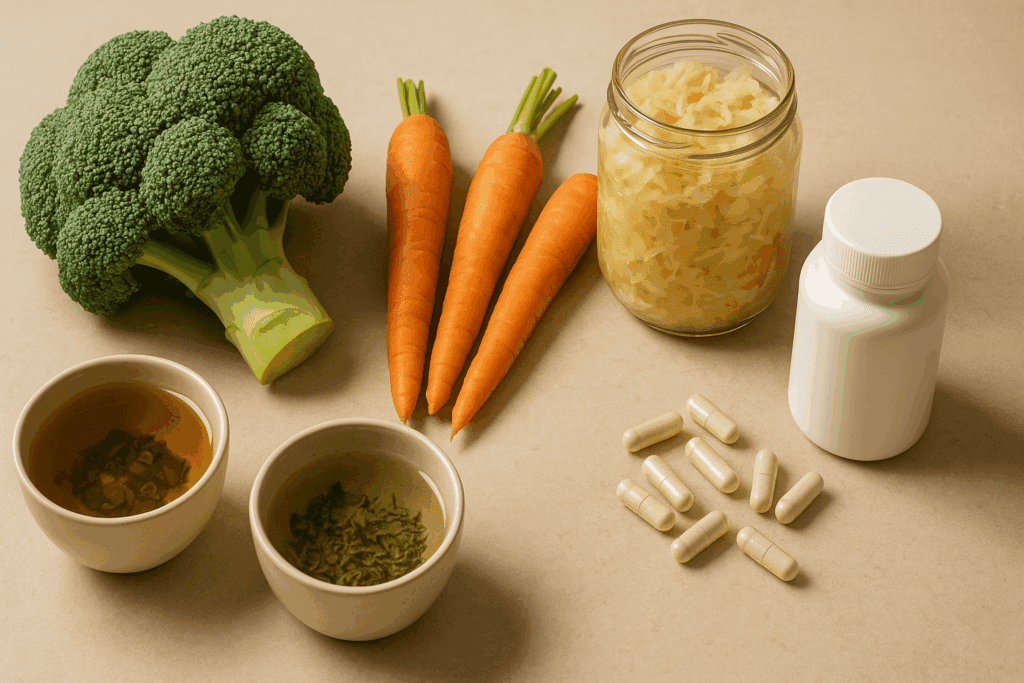
Fiber Content in Broccoli and Carrots: A Dual Approach to Gut Resilience
Taking a combined approach by including both broccoli and carrots in one’s dietary regimen amplifies the benefits for gut health. The synergy of their fiber types—soluble and insoluble—ensures comprehensive support for bowel function, microbial balance, and inflammation modulation. The fiber content of these vegetables, when consumed together, delivers a broader spectrum of prebiotic nourishment than either one alone.
This dual strategy is especially useful for individuals recovering from digestive disorders or those on elimination diets aiming to rebuild gut flora. The pairing also works well within the frameworks of popular dietary patterns like the Mediterranean diet or plant-based eating, which emphasize fiber diversity and anti-inflammatory foods. Thus, the combination of broccoli and carrots offers a holistic, accessible route to digestive wellness that is both evidence-based and practical.
Do Strawberries Have Fiber and How Do They Compare?
A natural comparison often arises when discussing high-fiber produce: do strawberries have fiber, and how do they stack up against broccoli and carrots? The answer is affirmative—strawberries are a respectable source of fiber, with approximately 3 grams per cup of sliced berries. Much of this is soluble fiber, particularly in the form of pectin, which aligns with the type found in carrots.
While strawberries do contribute to digestive health, their fiber density is slightly lower than that of carrots and comparable to raw broccoli. However, they bring additional benefits such as high antioxidant capacity and vitamin C, making them a complementary component in a fiber-focused, gut-friendly diet. The question does strawberries have fiber is easily answered by data, but understanding their unique contribution to a diverse microbiome provides a fuller picture of their role in holistic digestive health.
Integrating High-Fiber Vegetables into a Holistic Supplement Strategy
Though dietary fiber is ideally obtained from whole foods, there is an important discussion to be had about how vegetables like broccoli and carrots fit into broader holistic supplement approaches. While fiber supplements exist, they often lack the complexity of whole-food sources. The fiber content in natural produce comes bundled with a matrix of phytochemicals, antioxidants, and micronutrients that work together to enhance bioavailability and physiological effect.
Broccoli, with its sulforaphane content, and carrots, with their carotenoids, offer benefits that go beyond what can be encapsulated in pill form. Including them regularly as part of a diet that also integrates fermented foods, herbal teas, and other natural supplements creates a multi-layered defense for gut health. This synergy can be especially helpful for those managing chronic conditions or aiming to optimize digestive efficiency and immune function.
Frequently Asked Questions: Gut Health and the Fiber Content of Broccoli and Carrots
What makes the fiber content of broccoli so effective for gut inflammation management?
The fiber content in broccoli stands out due to its unique blend of insoluble fiber and bioactive compounds like sulforaphane, which have demonstrated anti-inflammatory effects in gut tissues. While the insoluble fiber helps bulk up stool and ease its transit, the phytochemicals present in broccoli stimulate detoxification enzymes and reduce oxidative stress in the digestive tract. This dual mechanism is particularly beneficial for individuals with inflammatory bowel conditions or a compromised gut lining. Furthermore, the fiber in broccoli enhances mucosal barrier function by promoting butyrate production, a short-chain fatty acid that strengthens intestinal cell walls. These layered effects position broccoli as more than just a source of dietary bulk—it becomes a functional food in inflammatory gut conditions.
How does cooking method influence the fiber in 1 cup broccoli?
Cooking method can significantly impact the fiber in 1 cup broccoli by altering its structure and digestibility. Steaming broccoli preserves most of its fiber content while making the vegetable easier to digest, which is especially helpful for individuals with sensitive digestive systems. Boiling, on the other hand, may lead to some fiber loss due to leaching into the water, although it also softens the cellulose, making it gentler on the gut. Roasting can enhance flavor while slightly reducing water-soluble components, but the core broccoli dietary fiber remains largely intact. For optimal balance between nutrient preservation and digestibility, lightly steaming or quick sautéing broccoli is typically the most effective method.
Does broccoli have fiber that supports gut-brain axis health?
Yes, emerging studies suggest that the fiber in broccoli indirectly influences the gut-brain axis by supporting microbial diversity and short-chain fatty acid production. These fatty acids, particularly butyrate and propionate, play a role in modulating brain inflammation and neurotransmitter regulation. When one asks, “does broccoli have fiber that contributes to cognitive health?”, the answer lies in its prebiotic effects that enhance the gut microbiota’s ability to produce neuroactive compounds. For example, serotonin production, which largely occurs in the gut, is influenced by microbial activity that feeds on dietary fibers like those found in broccoli. Therefore, consistent intake of broccoli may play a subtle but important role in maintaining mood stability and cognitive performance through the gut-brain connection.
Exploring Fiber Content: Why Is Soluble Fiber in Carrots So Unique?
Soluble fiber in carrots, especially pectin, exhibits distinctive gel-forming properties that not only regulate blood sugar but also nurture beneficial gut bacteria. This specific fiber content has a slower fermentation rate, which promotes gradual but sustained support to the gut microbiome. Unlike rapidly fermenting fibers that can cause bloating, the soluble fiber in carrots supports microbial health with minimal discomfort. Additionally, this kind of fiber acts as a carrier for polyphenols and carotenoids, enhancing their delivery to lower sections of the intestine where they exert anti-inflammatory effects. It is this holistic nutrient transport and timed microbial nourishment that makes carrot fiber a unique player in gut resilience.
Are carrots a good source of fiber for people on a low-FODMAP diet?
Yes, carrots are among the few vegetables that are considered safe for individuals on a low-FODMAP diet, making them an excellent option for people with irritable bowel syndrome (IBS) or sensitive digestion. The amount of fiber in carrots is substantial enough to support digestive function without contributing to excessive gas or discomfort. Their low fermentable oligosaccharide content means they are less likely to trigger symptoms in people with FODMAP sensitivities. Moreover, their pectin content offers a soothing effect on the gut lining, which can be beneficial during symptom flare-ups. When introducing fiber on a restricted diet, carrots serve as a gentle yet effective foundation.
How much fiber in broccoli and carrots should athletes consume for peak gut performance?
Athletes, particularly those engaged in endurance sports, often experience gastrointestinal distress due to physical stress, and their fiber needs require careful management. Including moderate amounts of broccoli dietary fiber and carrot fiber helps maintain bowel regularity and reduce inflammation caused by intense training. For optimal gut performance, athletes should aim for 6 to 10 grams of fiber per meal from mixed sources, which can include a combination of steamed broccoli and raw or cooked carrots. This ensures a balance of soluble and insoluble fibers, supporting both microbial diversity and intestinal motility. Importantly, the slow digestion of fiber in broccoli and carrots may also help stabilize energy levels by moderating glucose absorption.
Does strawberries have fiber that compares with broccoli and carrots?
Yes, strawberries are a respectable source of dietary fiber, particularly in the form of soluble fiber such as pectin, which they share with carrots. On average, one cup of sliced strawberries provides about 3 grams of fiber, but unlike the fiber in broccoli, strawberry fiber lacks a strong insoluble component. This makes strawberries excellent for regulating post-meal blood glucose and supporting beneficial bacteria, though they are less impactful for increasing stool bulk. People often ask, do strawberries have fiber that rivals carrots or broccoli? While strawberries contribute meaningfully to fiber intake, they are best used in conjunction with vegetables like broccoli and carrots for comprehensive gut support. Their antioxidant load, however, gives them a unique anti-inflammatory advantage within a diversified fiber strategy.
Understanding What Kind of Fiber Is Carrots: Are All Carrots Equally Beneficial?
Not all carrots provide identical fiber benefits, as preparation method and variety play significant roles. Purple and black carrots, for instance, contain anthocyanins that add anti-inflammatory properties to their already beneficial fiber content. Baby carrots tend to have slightly less fiber due to being peeled and trimmed, while whole raw carrots retain their full spectrum of both soluble and insoluble fibers. Cooking carrots lightly can improve the bioavailability of antioxidants without significantly reducing the amount of fiber in carrots. Therefore, when discussing what kind of fiber is carrots, it is essential to consider how the carrots are sourced, stored, and prepared to maximize both fiber quality and functional health benefits.
How does fiber in broccoli interact with probiotic foods in the gut?
The fiber in broccoli acts as a prebiotic, serving as a substrate that fuels the growth of probiotics such as lactobacillus and bifidobacteria. When consumed alongside probiotic-rich foods like yogurt, kefir, or kimchi, broccoli’s fiber enhances the survival and colonization of these beneficial microbes. This interaction is crucial for strengthening gut barrier function and lowering inflammation. Additionally, pairing broccoli fiber content with fermented foods may improve the efficacy of short-chain fatty acid production, creating an environment conducive to long-term gut health. This synergistic relationship between broccoli and probiotics exemplifies the power of combining whole foods for maximum digestive benefit.
How much fibre is in broccoli or carrots after juicing, and is it still effective?
Juicing significantly reduces the fiber content in vegetables because the process removes most of the pulp, which is where fiber resides. When you juice carrots or broccoli, the resulting liquid retains many vitamins and phytonutrients but lacks the full broccoli dietary fiber or carrot fiber that supports gut health. However, some juicers allow partial retention of pulp, preserving a small portion of insoluble fiber. For those who prefer juicing, incorporating blended versions or using pulp in soups and stews can reintroduce lost fiber in broccoli and carrots. So while juicing alone is not sufficient for fiber intake, mindful techniques can help preserve some of its digestive benefits.
Conclusion: Embracing the Fiber Content of Broccoli and Carrots for Long-Term Gut Wellness
In the pursuit of digestive health, few dietary strategies are as effective and accessible as increasing the intake of high-fiber vegetables like broccoli and carrots. Their distinctive fiber content, combined with a wealth of complementary nutrients, makes them indispensable allies in the maintenance of gastrointestinal function and microbial balance. By asking questions like how much fibre is in broccoli or are carrots a good source of fiber, individuals begin the journey of aligning everyday dietary choices with long-term wellness goals.
The evidence is clear: both broccoli and carrots offer a powerful foundation for building and sustaining a healthy gut. Their integration into daily meals is not only practical but supported by robust scientific understanding. When paired with mindful eating habits and other holistic strategies, the inclusion of these vegetables provides a transformative path toward digestive strength, immune support, and whole-body vitality. Embracing their benefits is not just a nutritional choice—it is a commitment to lasting wellness, grounded in nature and reinforced by science.

